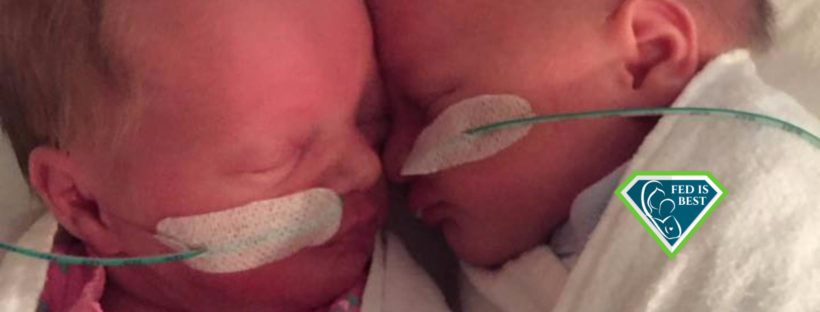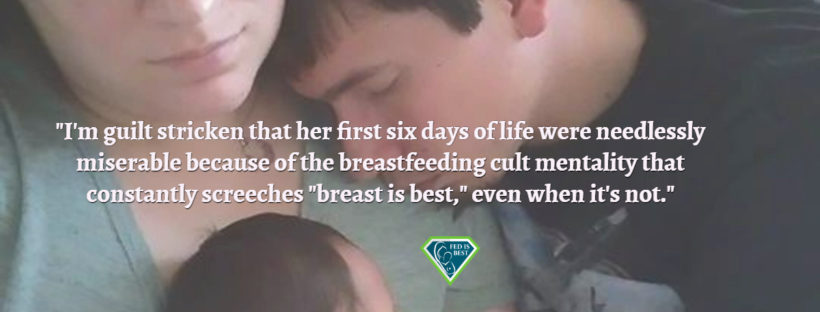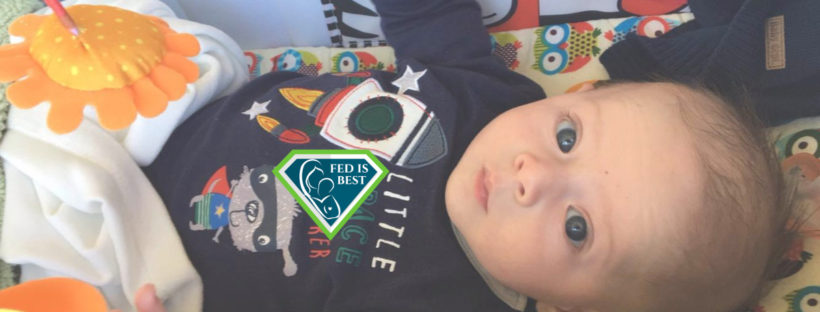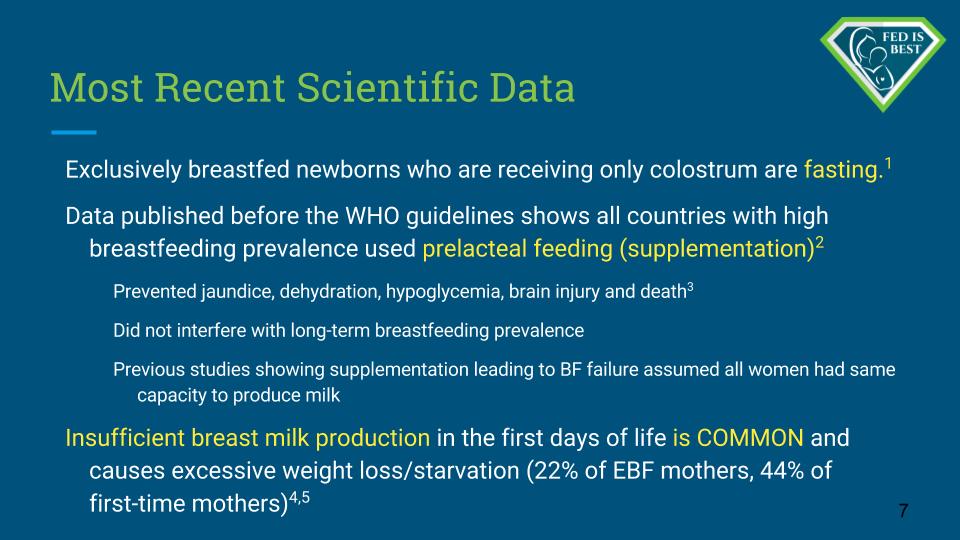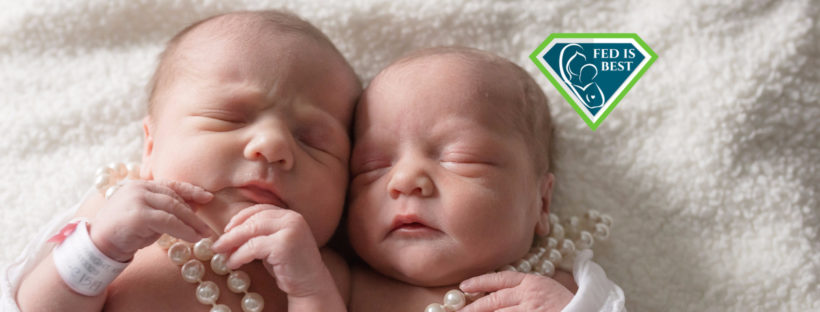I have three beautiful children: one nearly three year old boy, and one set of boy/girl twins, who are just three weeks old. If I could go back and change my eldest son’s first feeding experiences on this earth, I would. I would have been happier and my baby healthier if he had just been fed while attempting to exclusively breastfeed.
When I was pregnant with my eldest boy, I fully intended to breastfeed him. We were delivering in a Baby-Friendly Hospital. I had never heard the term “Baby-Friendly” before becoming pregnant, but when my husband and I attended the hospital tour, we were told that the Baby-Friendly label meant that the hospital had achieved what was considered the gold standard in breastfeeding support. We attended the available lactation, birth, and parenting courses at the hospital. Whenever I was asked if I was planning to breastfeed my son, I proudly said, yes, I would. I was 34 years old, and I had never really considered infant feeding practices before becoming pregnant. From the information presented, it was obvious that breastfeeding was optimal.
I was told that babies did not need very much food in the first days of life. I was told that I would always make enough to feed the baby. I believed that the information I was receiving in these courses was truly the gold standard.
My son was born naturally after an unmedicated labor. He was placed on my bare chest, latched and I was told that we were doing great. I would nurse him and then he started screaming after each nursing session. Later, I learned that newborns aren’t meant to continuously scream after attempting to feed. They are meant to be satisfied and then sleep. The crying and screaming means something is wrong. I did not realize that my colostrum might not be enough to keep him fully fed before my milk came in. If I was informed that different babies have different caloric requirements at birth, and that my colostrum might not be enough right away, I never would have consented to not feeding my newborn for any period of time. Continue reading
